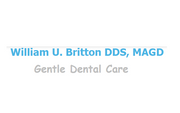
Tools like toothbrushes, floss, and mouthguards protect your teeth and gums, but there’s more to dental health than those parts of the mouth. Your jaw can have an impact as well. If you've been experiencing pain or discomfort in that area, it's possible that you have TMJ disorder. Here's a closer look at the condition and how it may be treated.
What Is TMJ?
Short for temporomandibular joint disorder, TMJ disorder refers to problems with the area where the jaw attaches to the skull. You may develop the condition if the joint is injured or damaged by any of the following:
- Bruxism, or teeth grinding
- Arthritis
- Whiplash
- Impact, such as a sports injury while not wearing a mouthguard
- Jaw misalignment due to tooth extractions
- Diseases in the bone or middle ear
- General stress or tension in the face muscles
In any case, it impedes you from moving your jaw up and down or side to side with the usual ease. This makes it difficult to talk, eat, and even yawn properly without pain.
What Are the Symptoms?
TMJ disorder presents several unpleasant symptoms. For example, you may occasionally and temporarily experience pain, tiredness, or swelling in your face, particularly around the problem area. Your jaw may also make popping or clicking sounds or even feel like it's stuck in an open or closed position.
.aG8teOqJK.jpg)
When chewing, it may seem like the top and bottom rows of your teeth aren’t fitting together, making every bite uncomfortable. These issues often lead to aches in the teeth, head, ears, shoulders, and neck. Your ears may develop tinnitus, and feelings of dizziness are also possible.
How Is It Treated?
A dentist will X-ray your jaw and examine both your teeth and facial muscles. Depending on their findings and the severity of your symptoms, they may recommend muscle relaxers, trigger-point injections, low-level laser therapy, deep heat therapy, bone splints, or nighttime mouthguards. These treatments all alleviate pain, release tension in the muscles, and help your jaw move more easily.
If your TMJ disorder is related to missing teeth, the dentist may recommend dental implants or a bridge. If you're consistently in pain and unable to move your jaw properly after other treatment methods fail, reconstructive surgery may be necessary.
Over-the-counter painkillers and ice packs are appropriate for short-term relief as the dentist assists you with long-term solutions. When you need to eat while your jaw hurts, try soft foods, such as yogurt, soup, fish, grains, beans, and cooked vegetables.
If you're looking for solutions for TMJ disorder, turn to William U. Britton DDS, MAGD, in Chillicothe, OH. With a passion for making dental hygiene a positive experience for everyone, Dr. Britton will offer a thorough yet sensitive evaluation and a range of customized solutions, such as a mouthguard to mitigate teeth clenching in the night. Since he’s a member of the American Dental Association®, Ohio Dental Association®, and Academy of Dental Sleep Medicine®, he’s more than capable of meeting your needs. Make an appointment today by calling (740) 772-2225 or learn more about the practice online.
About the Business
Have a question? Ask the experts!
Send your question

